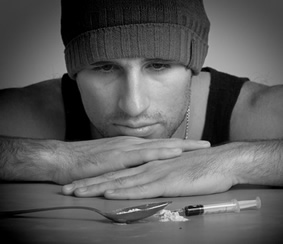 Substance abuse addiction can strike anyone from nearly any age group or demographic. There are so many factors involved in substance abuse, it is difficult to narrow it down to one main cause or set of causes. Whether the substance is alcohol, street drugs, or prescription drugs, addiction is an insidious disease. In the most severe cases of substance abuse, there is often a combination of a biological, emotional and sometimes even a spiritual component.
Substance abuse addiction can strike anyone from nearly any age group or demographic. There are so many factors involved in substance abuse, it is difficult to narrow it down to one main cause or set of causes. Whether the substance is alcohol, street drugs, or prescription drugs, addiction is an insidious disease. In the most severe cases of substance abuse, there is often a combination of a biological, emotional and sometimes even a spiritual component.
How do people become addicted?
Repeated use of drugs or other substances actually alter the brain. Chemicals within the substance of choice disrupt normal brain functioning. The communication system within the brain is inhibited and can become permanently altered over time. This happens in two ways:
- The substance simulates and takes the place of the brain’s natural chemicals.
- The substance artificially stimulates the reward/pleasure center of the brain.
Many addictive drugs have a similar chemical structure to certain neurotransmitters, which are chemical messengers that the brain naturally creates. Some chemicals within a drug actually “trick” the cell receptors within the brain to activate “feel-good” messages to the central nervous system, creating an artificial “high.”
Substance Abuse Effects on the Brain
Stimulants such as cocaine, methamphetamines or other “uppers” can cause the brain to release abnormally high amounts of dopamine, one of the brain’s main “feel-good” chemicals. Dopamine is responsible for positive moods, pleasure and a sense of motivation. When taking these sorts of drugs dopamine cannot be recycled normally, so the signals between the neurons in the brain continue to run perpetually instead of being regulated and shut off. This results in the user’s brain becoming overloaded with dopamine, causing an overstimulation of the reward center of the brain.
Normally, this reward system kicks in for behaviors related to survival such as eating, reproduction and positive social interaction with people. When this reward system is artificially stimulated via drugs, a dysfunctional, addictive pattern gets set up in which the user craves the drug in order to feel good.
As the addicted person relies more and more upon drugs for dopamine production, a “tolerance” factor kicks in. The user’s brain begins to adapt. The number of cell receptors for dopamine within the reward center of the brain begins to decrease. With fewer dopamine receptors, more and more dopamine must be produced in order to experience the same positive feelings. This goes for normal reward-producing life activities as well as when taking a substance. This pattern compels the addicted person to seek out more and more of their dopamine-producing substance of choice, thus creating a vicious circle.
Ensure a Successful Recovery
Substance abuse addiction is tackled from a number of angles to ensure successful recovery. In the first phase, detoxification is an important component of treatment. The client is assisted in being weaned off the substance and cleansing it from their system. Sometimes prescription drugs are used to help ease withdrawal symptoms during the detox process.
After detox, group and individual counseling are beneficial. It is crucial to get to the emotional root of the addiction, the life circumstances, stresses or traumas that might have contributed to the onset of the addiction. Even if the user is biologically predisposed to addiction, there are almost always life experiences that must be processed and healed in order to break the addictive cycle.
The good news is that through counseling, determination, insight and ongoing after-care, healing and recovery from addiction are possible. A qualified rehab center is often invaluable to this process.
Contact Drugrehab.org Today
You are not alone in your struggle. There is hope. Please contact Drugrehab.org today and get help. Don’t wait a day longer in the depths of an addiction. We can help you or someone you care for gain control of life again.
Call us today at the toll free number at the top of the page. If emailing us is more convenient, please fill out our form in the right column. Take your first step toward recovery.
For More Information Be Sure To Check Out These Additional Resources From DrugRehab.org:
- Social Learning Theory Of Addiction Treatment
- Substance Abuse and Panic Attacks
- The 45 Warning Signs Of Prescription Drug Abuse
- Is Addiction Genetic Or Environmental?
- What Is A Relapse Prevention Plan?
- Prescription Drug Abuse : An American Epidemic

